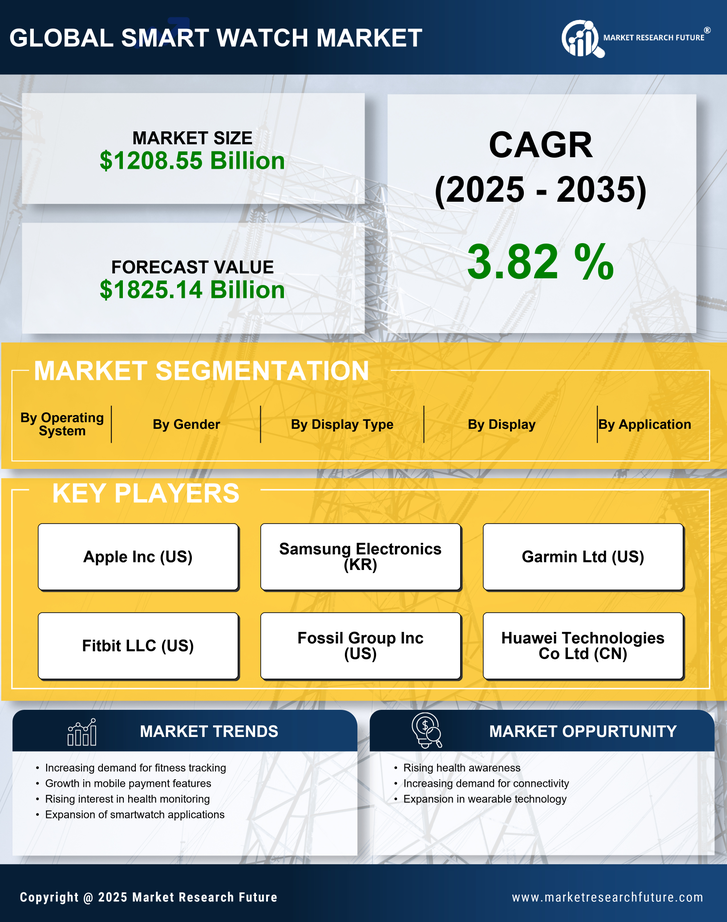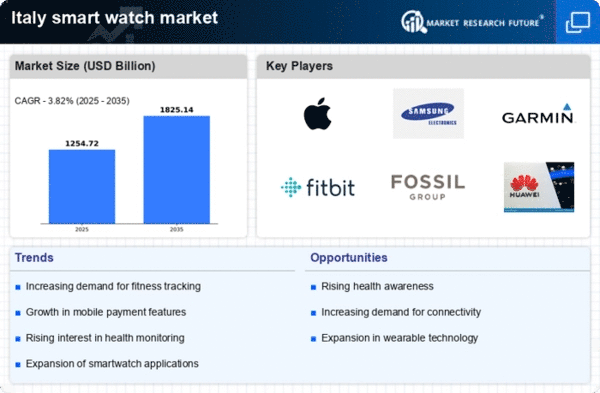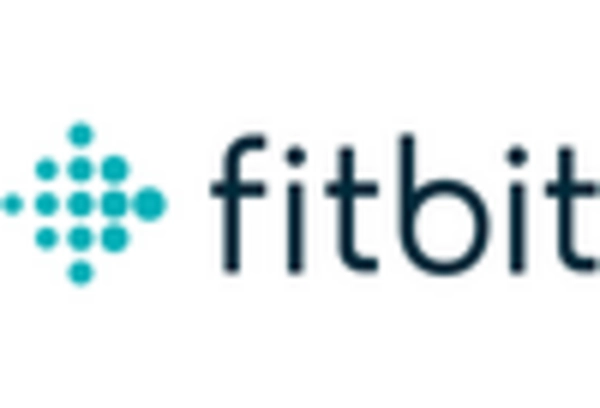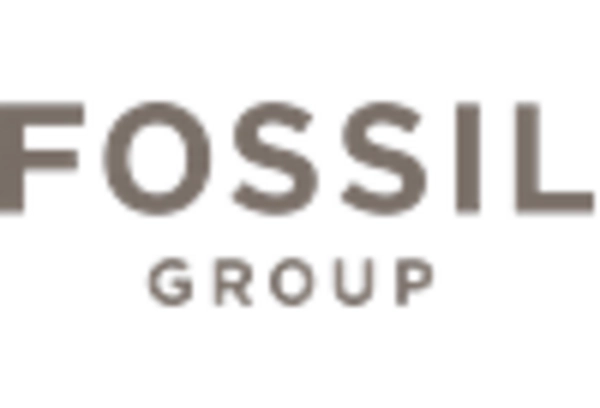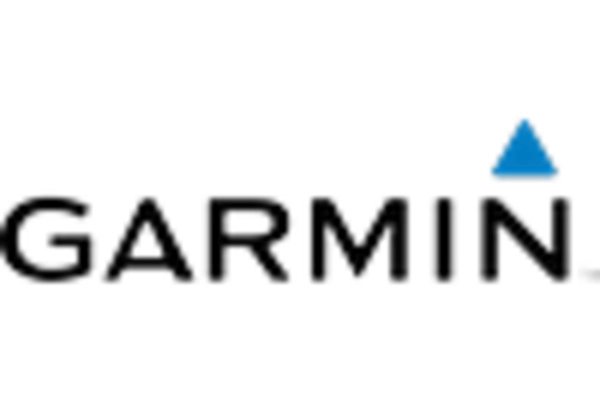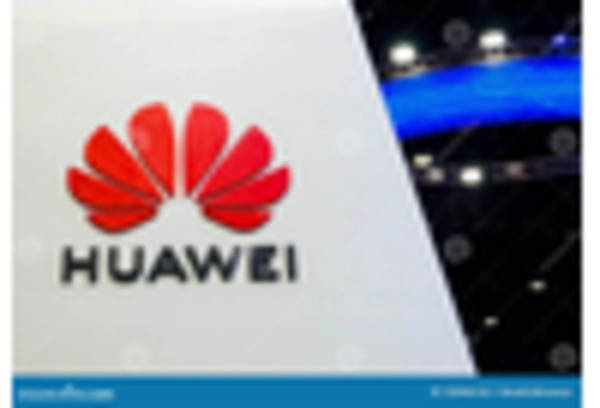Increased Smartphone Penetration
The proliferation of smartphones in Italy has a direct correlation with the growth of the smart watch market. As smartphone ownership continues to rise, consumers are increasingly looking for complementary devices that enhance their mobile experience. Smart watches that offer seamless connectivity with smartphones, allowing users to receive notifications, control music, and access apps, are becoming more appealing. Recent data indicates that smartphone penetration in Italy is nearing 90%, which suggests a robust potential customer base for the smart watch market industry. This interconnectedness is likely to drive further adoption of smart watches among tech-savvy consumers.
Rising Health Awareness Among Consumers
In Italy, there is a notable increase in health awareness among consumers, which is significantly impacting the smart watch market. The growing emphasis on fitness and wellness has led to a higher demand for devices that can track physical activity, monitor heart rates, and provide insights into overall health. According to recent surveys, around 60% of Italian consumers express interest in using smart watches for health monitoring purposes. This trend suggests that the smart watch market industry is well-positioned to capitalize on the health and fitness movement, as more individuals seek to integrate technology into their wellness routines.
Growing E-commerce and Online Retail Channels
The expansion of e-commerce and online retail channels in Italy is significantly impacting the smart watch market. With more consumers turning to online platforms for their shopping needs, brands are increasingly focusing on digital marketing strategies to reach potential customers. Recent statistics show that online sales of wearable technology have surged by over 30% in the past year. This shift towards online purchasing is likely to enhance the visibility and accessibility of smart watches, thereby driving growth in the smart watch market industry. As consumers become more comfortable with online shopping, the market is expected to benefit from this trend.
Technological Advancements in Wearable Devices
The smart watch market in Italy is experiencing a surge due to rapid technological advancements in wearable devices. Innovations such as improved sensors, enhanced battery life, and advanced health monitoring features are driving consumer interest. For instance, the integration of ECG and blood oxygen monitoring capabilities has become a standard feature in many models. This trend is reflected in the increasing sales figures, with the market projected to grow at a CAGR of approximately 15% over the next five years. As consumers become more health-conscious, the demand for smart watches equipped with cutting-edge technology is likely to rise, further propelling the smart watch market industry.
Evolving Consumer Preferences for Personalization
Consumer preferences in Italy are shifting towards personalized products, which is influencing the smart watch market. The desire for customization in design, features, and functionalities is becoming a key driver for sales. Many brands are now offering options for interchangeable bands, customizable watch faces, and tailored health tracking features. This trend indicates that consumers are not just looking for functionality but also for a device that reflects their personal style. As the smart watch market industry adapts to these evolving preferences, it is likely to see an increase in sales as more individuals seek unique and personalized wearable technology.
